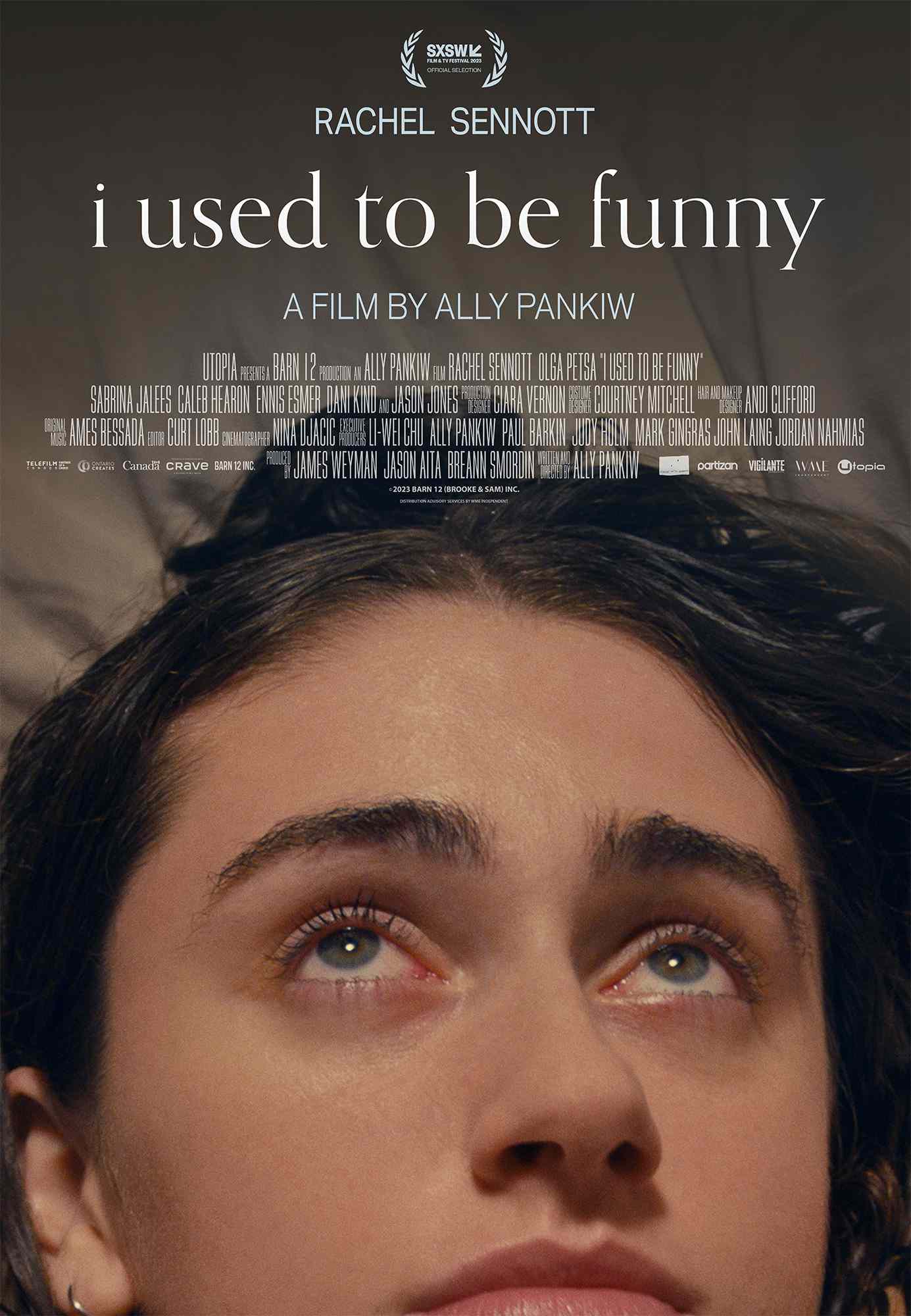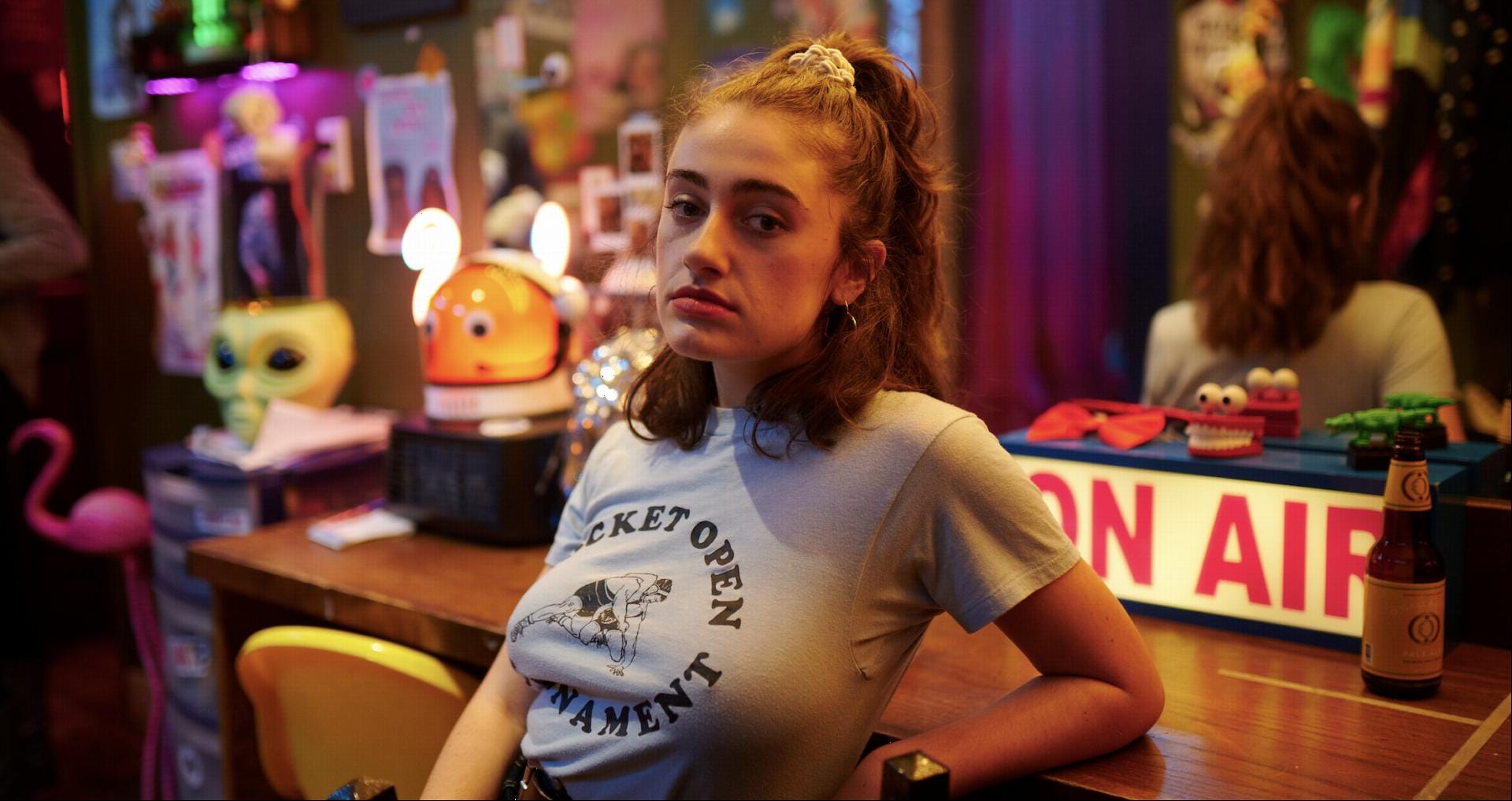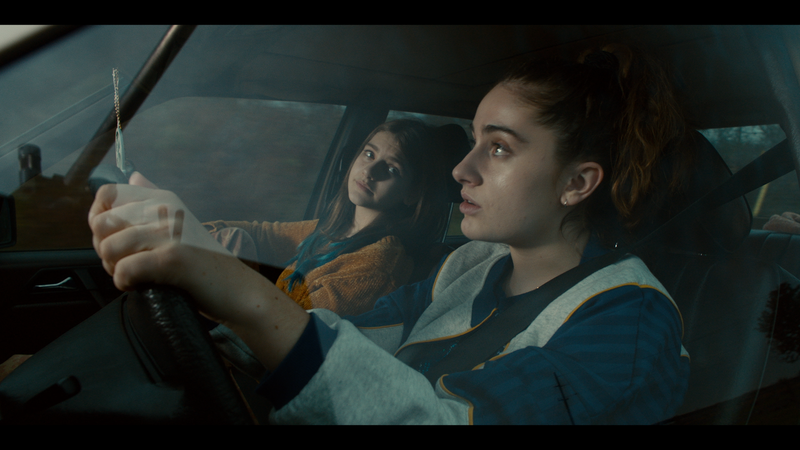I Used To Be Funny
“You should tell somebody that you saw her.” “Like… Jill?” “No, like the fucking police. Even though, ACAB obviously.”

Sam is a stand-up comedian struggling with PTSD, when she joins the search for a missing teenage girl she used to nanny.

Two years ago, Samantha "Sam" Cowell, was an irreverent and raunchy young comedian in Toronto, who took a nannying job to watch a 12-year-old girl named Brooke. Her father, Cameron, was stretched too thin, splitting his time between his job as a police officer, and taking care of Brooke’s mom, who was sick and dying in the hospital, and he needed someone to help him with his daughter and his house.
In the present-day, Brooke, now 14, is missing, after having angrily thrown a brick through Sam's window. Sam, meanwhile, is a pajama-clad shut-in, struggling with PTSD, and is no longer performing comedy.
Through a series of flashbacks, we see Brooke and Sam bond, as Sam becomes a part of the family, and Cameron discover Sam’s very openly sexual comedy online. And when Brooke’s mom dies, Sam tries is there for both of them. But then, one night, as Sam is leaving for the evening, Cameron is drunk and despondent, and he comes onto Sam, making references to her online jokes about rough sex. When she rejects him, Cameron rapes her. In shock after the assault, Sam wakes Brooke, tells her there is a carbon monoxide leak. Sam takes Cameron's car and drives off with Brooke. Both of them are in a panic, driving aimlessly, until finally, Sam pulls over and calls the police. Cameron is sentenced to five years in prison for rape. Brooke blames Sam for the shambles that is now her family.
In the present, unable to do anything else, Sam has begun to hunt for clues about Brooke's disappearance. Breaking into Cameron's house, which is now empty and up for sale, she discovers that Brooke has been squatting in her old family home. Sam finds Brooke’s journal there, and inside, it has a phone number for someone named Nathan. She calls, pretending to be a friend of Brooke's, and finds out that he lives in Niagara Falls. That's where she finds Brooke, in a shitty old punk rock flophouse, doing drugs with Nathan and some other much older boys. Sam pepper-sprays Nathan, and drags Brooke back to the motel she‘s staying at. The two argue, and eventually reconcile, and as Sam drives them home the next day, Brooke asks to visit Niagara Falls, indicating that they've started on a healing path together.
The next time we see Sam, she is performing standup comedy.

An examination of trauma, and how it can affect relationships and the creative process, I Used To Be Funny very effectively shows how the terrible violence that Sam experiences not only affects her and the people she loves, but also how the modern digital world can make things worse, as Sam’s life and her work are used against her in both the courtroom and in the court of public opinion. You clearly see how, despite the fact that she is the victim, Sam is vilified in the public and the press and online, and she is helpless in the face of all that public commentary and condemnation once it gets going. And we see her try to stand up to it, to try to take back her life, but the pressure is relentless. So it's understandable that she would retreat to her room. Due to how effectively this is all presented, when she begins her hunt for Brooke, it is clearly another attempt for her to re-take some control of her own life. As a result, you're rooting for her, not just to find Brooke, but to get back on the stage. For a small movie, this was all very well done. Well-paced and well-laid out. I really liked how the film used the small scope that it's obvious small budget demanded, to make the events of the film feel real, to make the world that she inhabited feel authentic, utilizing the smallness of it all to highlight how, even though she is just a speck in the wider world, these are huge things in her life.
I really liked that.
The film also does a great job of portraying the two worlds of Sam’s life, the part before the rape and the part after. In the former, she’s quick, she's funny, and she's unafraid to engage with people and the world around her. She even seems to be lit more brightly. She’s clearly full of life. But in the latter, she looks worn down, tired and slumped, and moves with a clear heaviness. The colors are even more muted. It’s not an overly obvious thing, the film doesn't beat you about the head with it, but the difference is still stark.
So yeah, this was all very well done, and Rachel Sennott is a real talent. Between this film, and Bottoms, and Bodies, Bodies, Bodies, I think she's someone to watch in the future. I Used To Be Funny is a good little movie. Cheap, quick, and small, it's a portrait of a young woman trying to process trauma and grief, and maybe embrace life again.
Thumbs up.
